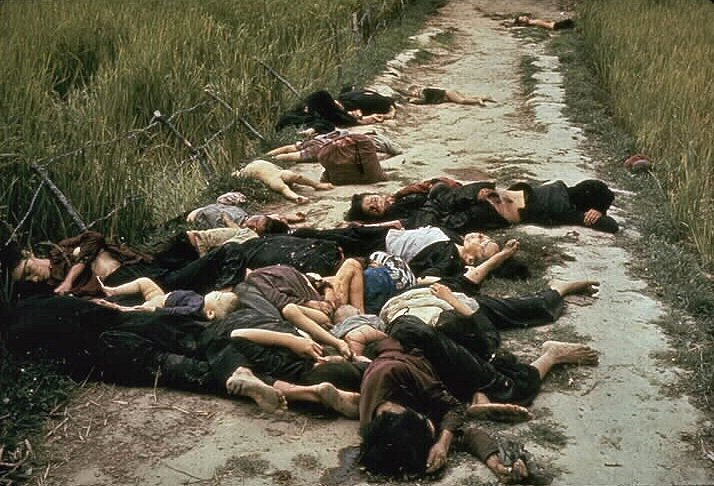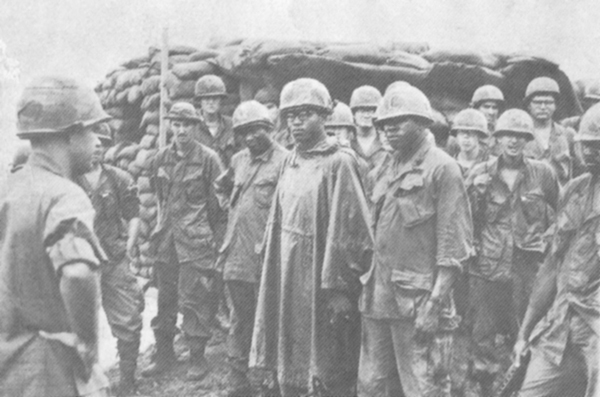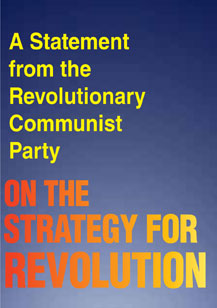From the Carl Dix & Sunsara Taylor National Campus Tour
“Yes, We MUST Seize State Power.
And No, They Are NOT Unbeatable!”
by Carl Dix
May 2, 2016 | Revolution Newspaper | revcom.us
During the “Meet the Revolution” tour, we have engaged in many formal and informal discussions with students over big questions. Here I want to get into a discussion I had with a couple of graduate students after one of the talks where we got right down to two big basic questions: Do the masses absolutely need to make revolution, or is there something short of that which could be liberating? And if we DO need to make revolution, could the rulers of today actually be defeated?
Sunsara and I had just put before the audience that the horrors inflicted on people all over the world were unnecessary; that they could be ended once and for all through revolution, nothing less; that Bob Avakian (BA) has developed a new synthesis of communism that takes the understanding of how to make revolution and bring into being a totally different and far better world; and that there was nothing more important students could do with their lives than get with the real revolution.
One of them began by saying, “Violent seizure of power from the ruling class is flat out not possible.” When I asked why, he replied: “Because the left is so far away from even thinking about that. Instead the left is thinking about how to build up movements that could achieve real things.”
Can the Masses Just “Withdraw From” the Authority of the State?
I asked what he saw such movements achieving. “They could spearhead mass withdrawal from the authority of the state by people concerned about income inequality, the environment, racism, sexism, etc.” He argued that this would lead to the state collapsing. Citing Antonio Negri (co-author of the book Empire), he added: “This would resolve the ‘problem’ of leadership because withdrawing from the domination of the state could be achieved by a horizontal movement.”
I probed the model this student was arguing for, asking whether he really felt people could just withdraw from the authority of the state and whether the state would allow them to do so or still unleash its repressive apparatus against such a movement if it considered that movement a threat. He said people could withdraw from the state’s authority, but he had to admit he wasn’t sure the state would respect such a withdrawal. He said: “That’s the problem I see with my approach.”
I directed things to what was the actual problem we were confronted with here and what would it really take to deal with that problem. “Look, seizing state power isn’t on the radar screen of the ‘left,’ or of hardly anyone else in society. But whether or not people are thinking about this isn’t the question. It really is the case that the horrors humanity faces are built into the fabric of this system, and revolution is what’s needed to get rid of this system. So we have to grapple with how this could be done. We have to look at what the problem actually is, and not redefine it into being something else which we think might be easier to solve.
“Neither Eric Garner nor Sandra Bland had the option of withdrawing from the system. Neither do immigrants driven from Mexico to the U.S. in search of work and survival, or women seeking to have an abortion. Neither do villagers in Pakistan or Yemen being targeted by U.S. drone strikes or children living in garbage dumps in Angola or the Philippines. They and billions of others around the world have no choice but to live their lives in the gears of the imperialist system. And the question is: What’s needed to emancipate humanity from this situation?
“Even people not aiming to seize power will be subjected to savage repression if the ruling class decides they’re a threat.” I cited the coordinated assault on Occupy as an example of this. “The horrors of this world are actually real, and anyone who finds them intolerable needs to grapple with how to end them by getting rid of the system that causes them. And this requires an actual seizure of power. BA has led the Revolutionary Communist Party in figuring out how to go about doing that.”
How the Revolution Would Have to Be Fought
I directed him to “On the Possibility of Revolution” (OTP) and the strategy for revolution statement on revcom.us, urging him to read them. And I spoke in broad strokes to what they lay out. “History has shown it is necessary to rip the power from the ruling class through meeting and defeating their military and repressive apparatus; if this isn’t done, the capitalist-imperialist system will remain in effect, grinding away, breaking the bodies and crushing the spirits of billions of people worldwide.
“By applying science, the science of communism, it’s possible to figure out how even a state as powerful as this one could be defeated. Key to doing this is to be clear that an all-out attempt to seize power could only have a real chance to win if it were launched in the midst of a revolutionary crisis—that is, when the rulers are divided up and fighting fiercely among themselves and when millions of people are ready to be led to go all out to make revolution. That time is not yet here. But it is our responsibility to work politically to hasten that time and to prepare a core NOW to lead those millions to win, when times do change and the chance opens up.”
I continued, saying that “In launching and carrying forward the attempt to seize power, the revolutionary forces would have to fight in ways that were consistent with the liberating society they were fighting to bring into being; and in ways that would take the reactionary rulers ‘out of their game.’ This would include refusing to be drawn into decisive encounters with the rulers’ military prematurely and working to wear down the effectiveness of the enemy’s forces. And it would include fighting in ways that would make it harder for the rulers to unleash all their military might on the revolution; or at least would drive even more people into opposition to their attempts to suppress the revolution if they did unleash all their military on the revolution. And the revolutionaries would have to go at this in a way that would make it possible to draw on the support of the millions of people who wanted to see the system brought down.” I noted that OTP goes at how this would have to be done in a country like this one, and I urged him to go to the website revcom.us and get into it. (I urge everyone reading this to do the same.)
 Villagers massacred by U.S. Army troops at My Lai in Vietnam, March 16, 1968.
Villagers massacred by U.S. Army troops at My Lai in Vietnam, March 16, 1968.

GIs refuse to return to combat, AK Valley, Vietnam, September 1969.
What Are the Real Lessons of the U.S. Defeat in Vietnam?
Finally, I cited what happened in Vietnam in the 1960s as an example of a smaller, less powerful, military force that tapped into an oppressed people’s desire for liberation and succeeded in defeating the much more powerful U.S. military. Vietnamese liberation forces had defeated the French army, liberating the northern part of their country from French colonialism. The U.S. had sent more than 500,000 soldiers into South Vietnam to back up the government France had set up in that part of the country. The U.S. also dropped more bombs on Vietnam than had been dropped in Europe during WW 2 to keep the liberation forces from uniting the whole country under their rule.
The Vietnamese people resisted this U.S. invasion for a decade, fighting its powerful military to a standstill and kicking its ass in many encounters. In the speech, I had laid out how I had been in the U.S. army and been given orders to go to Vietnam, orders that I had refused to obey.
One of the students responded that he didn’t think the U.S. had been defeated in Vietnam. He felt the U.S. chose to withdraw their forces and support South Vietnam’s army against the liberation forces, but the South Vietnamese army proved not to be able to defeat the liberation forces. I had to tell him that this missed a big part of the reality. “I was in the U.S. army in the 1960s and 1970s. Things had reached the point where U.S. soldiers were refusing to go on patrol to seek out the liberation forces and fight them. There were many cases of U.S. soldiers killing U.S. officers who tried to force them to go out and fight. This was a significant part of why the U.S. rulers pulled their troops out in the early ’70s.”
This student didn’t see that progressive forces could engage in this kind of warfare today. He said he was familiar with “asymmetrical warfare”—warfare in which less powerful forces take on larger, better armed military forces—but he felt this was only suitable for fascist forces today. I asked why, and he replied, “They’re the only ones carrying out this kind of warfare today.” He also felt the Vietnam experience backed up his approach of taking the system on through decentralized, nonviolent resistance because he felt the U.S. military’s effectiveness had been worn away by GI resistance in the military and the impact of the antiwar movement.
I told him that now he was only looking at what happened in the U.S. and ignoring more fundamental things that were happening in Vietnam and laying the foundation for what was happening in the U.S. “The antiwar movement in this country and resistance of soldiers inside the army were factors in the defeat the U.S. suffered in Vietnam, but important as they were, they were secondary ones. The most decisive factor was how the Vietnamese revolutionaries had fought the U.S. military to a standstill and inflicted many defeats on it in the process. This, along with the influence of the powerful Black liberation struggle within the U.S. and the youth movements, is what eroded the effectiveness of the U.S. military and contributed to soldiers like me opposing the Vietnam War from inside the U.S. army.”
What People Think... and How to Think About It
This called to mind Bob Avakian’s quote that “What people think is part of objective reality, but objective reality is not determined by what people think.” I told this student that reality was far more dynamic than he saw it. Yes, it matters that not only the “left” but society more broadly isn’t even thinking about revolution. “But what’s more fundamental is what the underlying reality will compel people to think about and do as things develop. Because of that, it’s crucial that those who see the need for acting to stop the horrors of today’s world to spread broadly throughout society the need for, and possibility of, revolution and to organize them into an actual revolution.”
I took this back to the message of our tour, connecting this generation of students to the actual revolution and recruiting them into it. That this was why it mattered if people connected with the Revolution Clubs, studied the works of BA with it, and ran with it to fight the power, and transform the people, for revolution. That what people did right now would determine whether there would be hundreds of trained and tested leaders prepared to lead millions whenever a revolutionary crisis opened up. And that this would contribute to hastening the development of a revolutionary crisis.
By this point, not just the room we were in, but the whole building was being shut down. We had to draw to a close for the evening, as did the other knots of students and revolutionaries huddled in other parts of the room. I worked to get him connected to the Revolution Club members in the area and urged him to go regularly to this website, revcom.us, where we will be reflecting much more about these and other big questions as part of taking this fight forward for students to join the revolution.
Volunteers Needed... for revcom.us and Revolution
If you like this article, subscribe, donate to and sustain Revolution newspaper.









